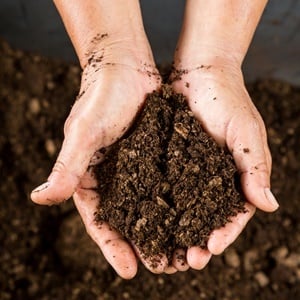
Doctors warn that eating dirt can be dangerous. The craving results from low iron levels in the body, and is a condition that can be treated.
While eating soil is commonly viewed as a harmless practice, KZN general practitioner Dr Lungi Masuku warns that women who do this risked ingesting material that could be harmful. Eating soil is a symptom of anaemia – an iron shortage that needs to be treated.
Read: Soil-eating trend dangerous
Bacterial infections
Dr Masuku says many women develop iron deficiencies during pregnancy and start eating soil as a result. They could, however, develop a worm infestation or other parasitic and bacterial infections by eating dirt.
She adds that women who eat soil should tell their doctors about their cravings, so a proper check can be done to ascertain the cause. Supplements such as iron, magnesium or zinc tablets can then be prescribed.
She also suggests that women with soil cravings eat a lot of beetroot and liver because these foods have a high iron content.
“Soil is a foreign material carrying lot of dirt and harmful agents such as worms, animal faeces and fungi. There are various problems that ingesting soil can cause in the human body by for example disturbing bowel movements or even causing a bowel obstruction. Women need to be told that what they eat can present a danger,” says Dr Masuku.
Pregnancy
Health-e spoke to several women about their soil eating habits. Some said they started eating soil in their teenage years, while others said they started only after they fell pregnant.
Buhle Mkhize (33) of KwaNyuswa, west of Durban, said she started eating soil five years ago when she was pregnant with her second son.
“I would see a lot of pregnant women coming out of clinic take packets of soil from their handbags and eating it. When I asked them why they were eating dirt, they told me it soothed their morning sickness, boosted their appetite and relieved stress. These were worries for me at the time, as I didn’t have much appetite. So I started joining them and I saw my stress easing and my energy coming back,” explains Mkhize.
She said eating soil had become an addiction for her and now, five years on, she sees nothing wrong with what she is doing and has no intention of breaking the habit.
She said she believed that as long as her ordinary diet remained healthy, she exercised regularly and drank lots of water to flush the dirt from her system, she believed she was not doing herself any harm.
'I don't want to continue'
Sizwe Mshengu (25) is also a soil addict.
“Honestly, I don’t want to continue eating soil anymore, but it is not easy to stop. I even told my mom and she tried to help me by buying me some sweets, but that did not work. I didn’t start eating soil while I was pregnant like most of the other women I have seen. I started after seeing my friends doing it when I was 15 years old,” she says, explaining how she developed the habit.
“Now I cannot even sleep without it. Sometimes in the night I wake with these cravings. I really need help; even at 12 midnight this craving wakes me up. I really need help,” Mshengu says.
Read: Soil
Ayanda Dlamini (28) of Botha’s Hill said she would sometimes travel six or seven kilometres from home to dig up bags of soil to eat because the sand in her neighbourhood tasted bad.
“I do agree that I am an addict, because I started eating soil when I was 18 years after seeing my sister do it. It's been 10 years now and I have been admitted in hospital with gastritis more than three times. I often struggle when I go to the toilet and feel like I cannot continue to live like this. If there was a rehab centre for people who eat soil, I would be the first one to attend it,” Dlamini said, explaining how extreme her addiction is.
Dr Masuku said more doctors should question their patients on possible soil eating habits, so they could be diagnosed and treated.
She said the media also had a role to play by informing communities of the dangers of eating soil, and explaining the need for soil addicts to seek treatment for the iron and mineral deficiencies that are the cause of their habit. – Health-e News.
Read more:
SEE: Potentially dangerous mercury levels in SA retail fish
Cape school gets clean drinking water for the first time




 Publications
Publications
 Partners
Partners














